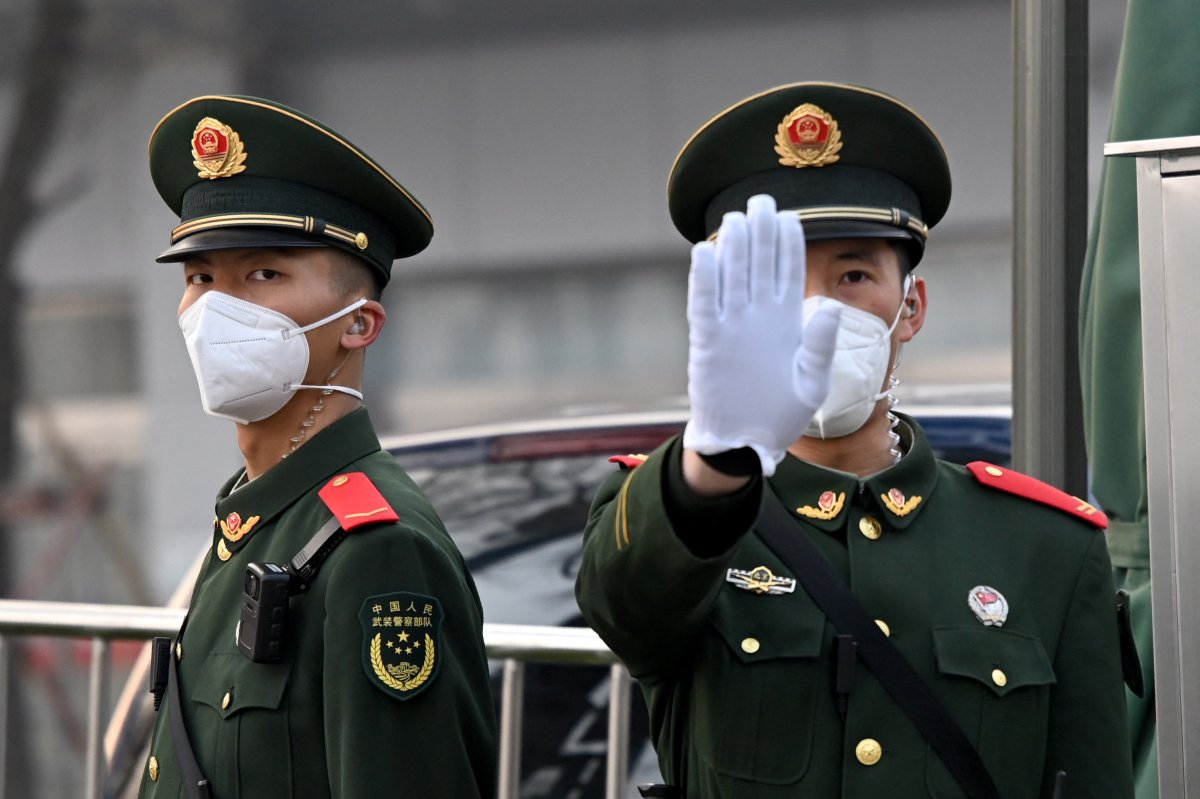Two Philippine nationals convicted of drug offenses in China were executed last month despite official appeals to delay the punishment, Manila said on Saturday, in a move that will likely deepen mistrust on both sides.
The Philippines' consulate in Guangzhou, a Chinese city in southern Guangdong province, said the executions were carried out on November 24, according to the official Philippine News Agency. Government officials said they exhausted all diplomatic avenues while trying to seek a stay of execution.
The news comes at a low point in China-Philippines ties over political differences surrounding disputed territories in the South China Sea, claimed in almost its entirety by Beijing. Chinese government ships continue to confront Philippine boats operating with the Philippines' exclusive economic zone, in apparent defiance of international law.
Teresita Daza, the Philippines' foreign affairs spokesperson, said the department delayed the official announcement until the government had been formally notified by Chinese authorities. Manila had appealed at the highest level for the death sentences to be commuted to life imprisonment, she said.
"Our repeated appeals were consistent with the laws and values of our nation, which put the highest premium on human life," Daza said.
The Chinese government ultimately upheld and carried out the executions, citing its own laws, which Daza said the Philippines must respect.
The two Filipinos were arrested in Guangdong in 2013 on suspicion of trafficking a total of 26 pounds methamphetamine stashed inside DVD players, according to Manila's foreign affairs department. Their names were not released, according to their families' wishes.
Daza said illegal drug networks were "a scourge that we as a nation must confront."
Syndicates were preying on economically disadvantaged Filipinos, she said, warning traveling citizens to beware of efforts to recruit "unwitting travelers as drug mules."
Of the 92 capital punishment cases involving Filipinos in China, all but one involved drugs, and 88 have been commuted—two to life sentences and 86 to shorter terms, according to the Philippines' government figures.
Daza said two outstanding cases were awaiting final reviews.
The Philippine and Chinese foreign ministries did not immediately respond to Newsweek's written requests for comment before publication.

China is widely believed to the world's top executioner. The precise number of people put to death each year is difficult to determine due to the Chinese criminal justice system's lack of transparency, but the U.N. Human Rights Office estimates they number in the thousands.
Capital offenses in China include non-violent acts such as corruption, drug trafficking, espionage and "separatism."
The executions prompted who Philippine lawmakers to call for a tit-for-tat reinstatement of the death penalty for drug offenses committed by foreigners.
Rep. Robert Ace Barbers, chair of the Philippines' House Dangerous Drugs Committee, said: "If they put our compatriots to death for violations connected to illegal drugs, let us do the same to their nationals, many of whom are caught manufacturing, peddling or smuggling drugs into the country."
Rep. Rufus Rodriguez, former deputy speaker of the House in the Philippines, called on the country's Congress to consider his July 2022 bill, which, if passed, would make foreign nationals convicted of drug-related crimes eligible for the death penalty, so long as the same applied to offenses in their countries of origin.
"While we do not question the laws of China and other countries, we must ensure that our countrymen do not suffer the short end of the stick," he said.
The Philippines abolished capital punishment in 2006.
Uncommon Knowledge
Newsweek is committed to challenging conventional wisdom and finding connections in the search for common ground.
Newsweek is committed to challenging conventional wisdom and finding connections in the search for common ground.
About the writer
Micah McCartney is a reporter for Newsweek based in Taipei, Taiwan. He covers U.S.-China relations, East Asian and Southeast Asian ... Read more
To read how Newsweek uses AI as a newsroom tool, Click here.








